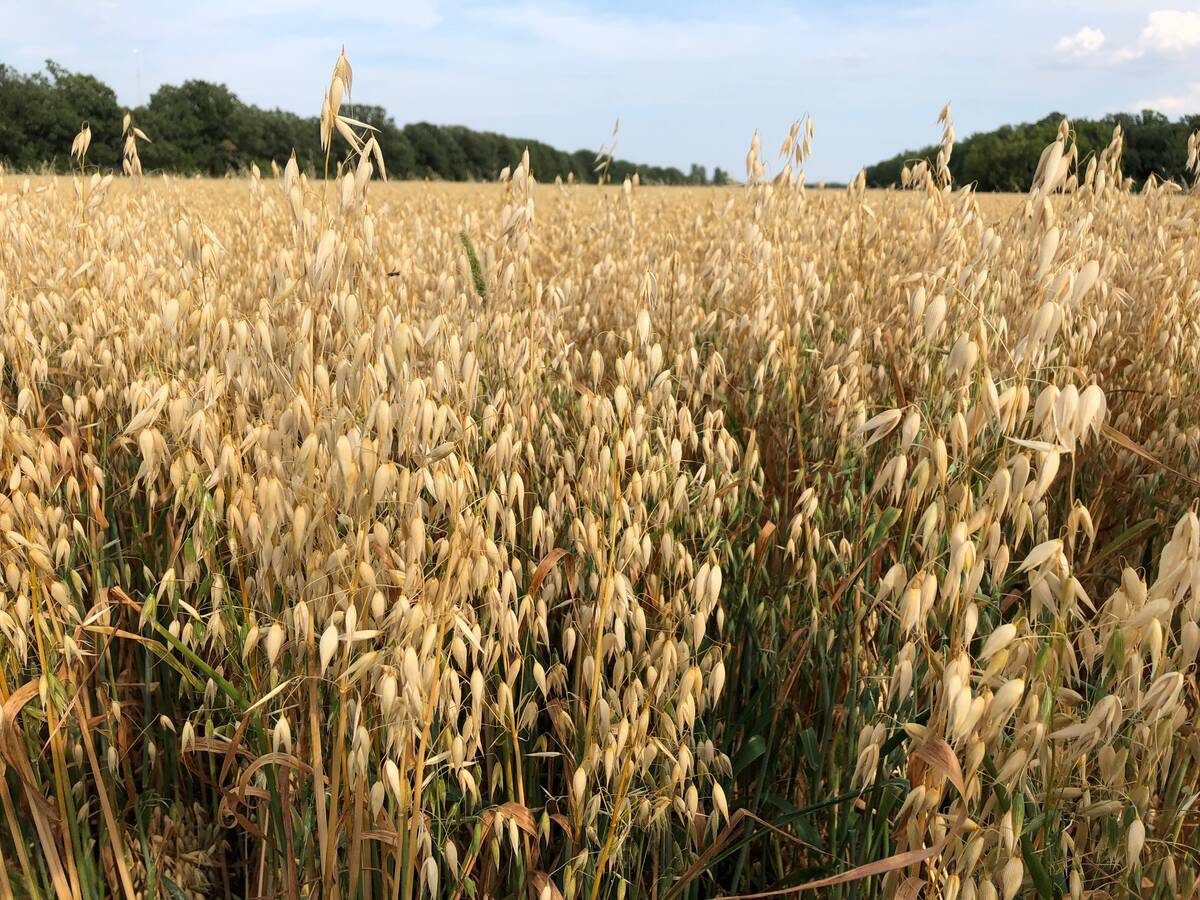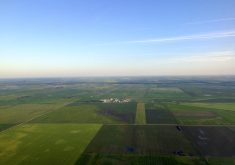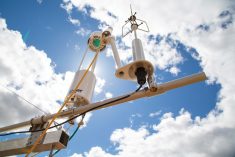In response to the Manitoba Co-operator’s March 22 editorial, “Go ask ALUS,” we at ALUS Canada would like to add to the history of ALUS and its current status.
Many farmers in Manitoba will remember ALUS as a homegrown idea. A dozen years later, ALUS can rightly be called the next generation of Canadian conservation.
What began in 2006 as a pilot project in the Rural Municipality of Blanshard, Manitoba, is now a non-profit organization that invests in farmers and ranchers across Canada — as ALUS participants, they produce acres of cleaner air, cleaner water, enhanced habitat for wildlife and pollinators, and other ecosystem services in their communities.
Read Also

Controversy fails to sink plant growth regulator use in Manitoba oats
Plant growth regulators in oats got some bad press last year, but some Manitoba farmers maintain they’re helpful and do their job: to reduce lodging.
The original Blanshard pilot was led by Keystone Agricultural Producers, Manitoba’s largest farm organization, and strongly supported by the Delta Waterfowl Foundation, an organization that adopted and fostered the ALUS program until it was ready to become a stand-alone registered charitable organization.
Now known as ALUS Canada, A Weston Family Initiative, ALUS provides a set of core principles, central guidelines and sophisticated support mechanisms to the growing network of ALUS communities across the nation.
ALUS has grown organically, community by community, driven by the positive experiences of its participants. There are now 20 community programs in five provinces — Manitoba, Alberta, Saskatchewan, Ontario and Quebec. We are especially proud of our ALUS Little Saskatchewan River program, a much-expanded version of the original Manitoba ALUS pilot.
With more than 400 farmers and ranchers participating — 100 of whom have signed up in the last year alone — it’s clear that ALUS works. It empowers the grassroots, delivers through rural communities and is committed to the notion that Canada’s farmers and ranchers have the knowledge, skills and abilities to provide solutions for Canadians.
“The ALUS program takes a non-prescriptive approach — its strength comes from encouraging agricultural producers to help develop and implement workable solutions to environmental issues,” says Paige Englot, ALUS Canada’s Regina-based Prairie hub manager. “Another strength of ALUS is that, at its core, it acknowledges regional differences — so local communities can define the program to fit their own circumstances and priorities,” says Englot.
As a charitable organization, ALUS Canada provides all ALUS communities with a diverse mix of governmental, philanthropic and corporate sponsorship funds — to the tune of nearly $4.3 million so far, nearly $1.5 million in the last year alone. And every dollar invested by ALUS Canada is multiplied on the ground, through the financial and in-kind contributions of ALUS communities and participating farmers.
The magic of ALUS is that it goes beyond a traditional land-conservation model. Participants in the ALUS program don’t merely preserve acres of land, they establish and steward innovative ALUS projects on their land, projects that produce ecosystem services — a unique environmental product for which ALUS Canada is working hard to find new markets.
“ALUS” is a name often used interchangeably with other ecosystem goods and services programs, but ALUS has a secret sauce: its “PAC” structure. Every ALUS community is driven by a ‘Partnership Advisory Committee,’ or PAC, comprising local farmers, ranchers and a roster of partners from other environmental and agricultural programs. The key to the PAC’s effectiveness is that only farmers can approve ALUS projects: advisers advise, but farmers and ranchers decide.
As this PAC system indicates, ALUS is all about partnerships. Each of our 20 community-based programs run as a partnership with a local organization. Through ALUS Canada, all ALUS communities can benefit from partnerships: with universities for science and research; with other organizations for complementary funding opportunities.
What’s more, ALUS Canada’s ‘New Acre Project’ now makes it possible for corporations to invest in the production of ecosystem services, thereby fulfilling their corporate social responsibility mandates throughout Canada’s farming communities.
While ALUS continues to resonate with farmers in Manitoba, where its roots are deepest, the program has already expanded to four other provinces, and is preparing to be scaled across the nation — ALUS Canada aims to reach 150,000 acres in 75 Canadian communities by 2025.
It is this new, shared model for land stewardship, this ALUS revolution, that will make all the difference to future generations of Canadians.
ALUS Canada’s CEO, Bryan Gilvesy, is a cattle rancher who has been a tireless advocate of environmental stewardship over the last 12 years.














